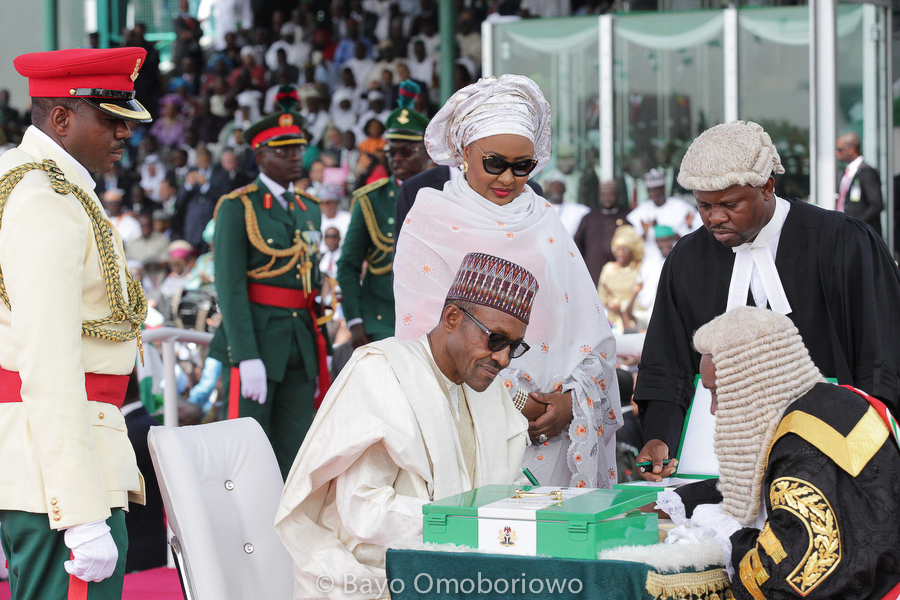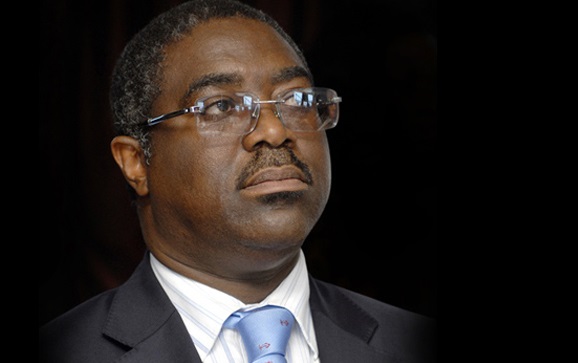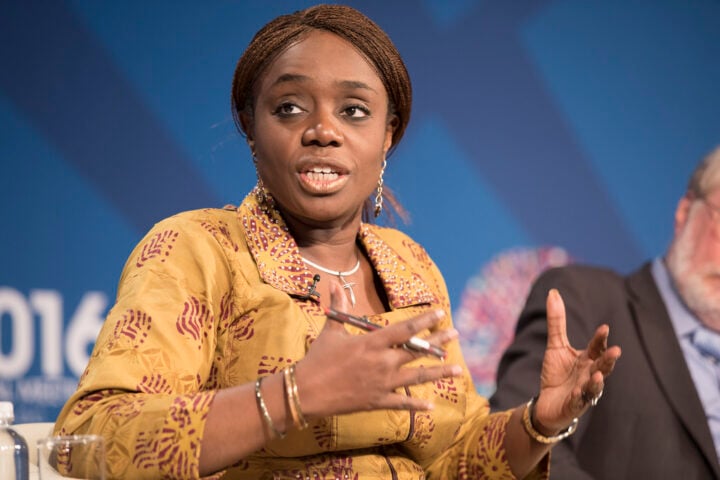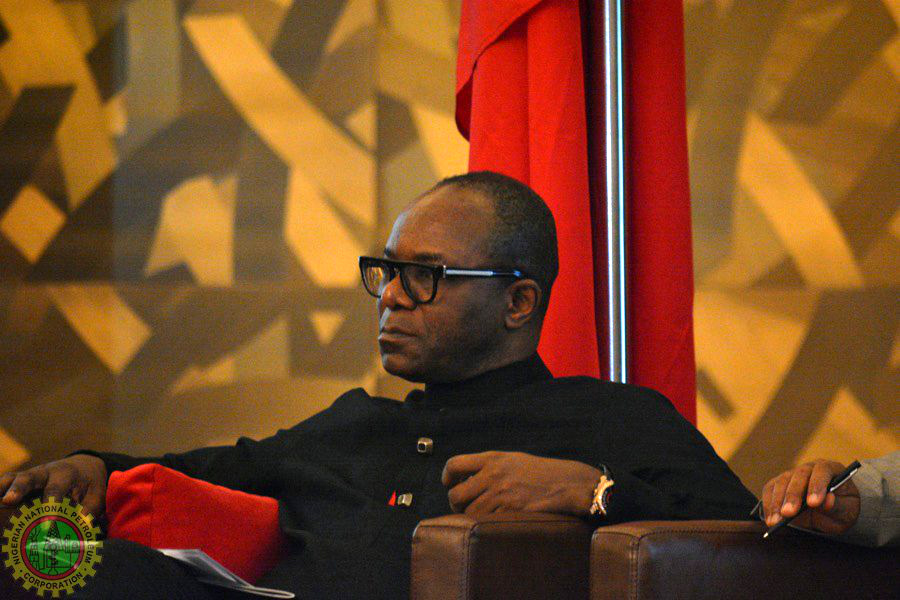After a hard day worrying about where to find money to finance the 2016 budget, seeing distressing pictures of the latest pipeline blow ups, receiving unpalatable briefs on negotiations with Boko Haram, seeing screaming newspaper headlines of in-fighting among ruling party leaders, his legislators angry over budget padding allegations and with judges fuming that cops clambered up their walls, the last place that President Muhammadu Buhari needed trouble was at home. In the event, he found it there aplenty.
Hajia Aishatu Buhari has earned the dubious honour of being the first First Lady ever to attack her husband’s leadership style in public. If President Shehu Shagari’s wives ever disliked Alhaji Umaru Dikko’s overbearing influence in their husband’s administration, they never said so in public. If Mrs. Maryam Babangida ever disliked her husband’s convoluted transition program, she never said so publicly despite the array of microphones at Better Life rallies. Maybe Mrs. Stella Obasanjo did not like “Accidental Public Servants” wielding power in her husband’s regime but she never said so publicly. Even Mrs. Patience Jonathan never went public to criticise her husband’s very chummy relationship with Diezani Alison-Madueke.
Not only here. Mrs. Eleanor Roosevelt never complained in public that Harry Hopkins hijacked her husband, FDR. Mrs. Pat Nixon never went public to criticize President Richard Nixon’s closeness to Bebe Rebozo. I never read anywhere that Mrs. Jehan Sadat publicly complained that Osman Ahmed Osman, owner of Arab Contractors, took President Anwar Sadat for an hour-long walk every afternoon. That Mrs. Buhari chose the BBC Hausa Service, the news medium with the deepest reach in Northern Nigeria and beyond to vent her anger at her husband’s style of rule shows how widely she wanted to spread the message. By choosing a foreign medium with a fierce reputation for independence, the First Lady also ensured that the Presidency’s frantic efforts to stop the interview from being aired had not a dog’s chance of success.
Why did she do it? We cannot know for sure. Hajia Aisha comes from a conservative Adamawa Fulbe family whose tradition is the opposite of rebellious. Nigerian military officers’ wives are generally known to be GOCs of the Home Front but when General Buhari married Hajia Aisha in 1989, he had been out of the Army for four years, so she had no barracks experience. Even though most husbands are older than their wives, wives generally do not see husbands as their seniors. Otherwise, Hajia Aisha ought to have deferred to the considerable age and life experience difference between the two of them.
Advertisement
The message that she was so desperate to convey to the public was multi-dimensionally problematic. It is that her husband’s regime has been hijacked by people that she did not personally know despite being his wife for 27 years; they were not prominent during the gruelling campaign; they are not even registered voters; they marginalised those who suffered in the campaign, as a result of which the 15 million people that voted for Buhari could stage a revolt; and that she will not campaign for him if he decides to run again in 2019. Even though she refused to mention the names of the power hijackers, saying we should look out for them on television, widespread belief is that she was referring to the president’s Chief of Staff, Malam Abba Kyari, and Buhari’s influential nephew, Malam Mamman Daura. These two men are solid intellectuals but they are not what you call politicians.
A leader does not have to personally know someone before appointing him to a position. In 1980 US President-elect Ronald Reagan’s staff recommended businessman Malcolm Balrige for Secretary of Commerce. Reagan didn’t know him, so a phone call was placed to Baldrige’s ranch in California. His aides however said he had just mounted a horse, which he does for two hours every day and he will not dismount just to speak to the President-elect. Reagan smiled and said, “I like that. Appoint him!”
Citizens are interested in the company the president keeps but it is his right to consult who he wants and to appoint who he wants into executive offices, subject to other provisions of the law. If he keeps bad company or listens to the wrong people, he will one day answer to the voters, to card reader and to history. Questioning a president’s choice of company is slippery terrain. A BBC reporter once asked Sierra Leone’s President Siaka Stevens why he appointed certain people to his cabinet. The wily old Stevens sighed and said, “You should leave that to me! It is my–what is the right word?–prerogative!”
Advertisement
Mrs Buhari gambled that her interview will galvanise public opinion and force her husband to discard his inner circle. She ended up irking most Nigerian men who frowned at her method. There is not a man around who wants his wife to criticise him in public. Many traditional women however sympathised with the First lady. They think she was frustrated by an austere husband who belongs to nobody; they believe she deserves a bigger spot in the limelight [so that other wives can tag along]; and they think the wife of a powerful person should be powerful as well as a matter of right. Probably as many women however disapprove of her method, which could be counter-productive in the long run because every state governor is now looking over his shoulder in case his wife got some ideas.
Enter, the First Gentleman. President Buhari went to [East] Germany last week and while holding a joint press conference with Chancellor Angela Merkel, a reporter asked him about his wife’s interview. Buhari had no reason not to anticipate the question since the story broke three days earlier. He should have sat down with his staff and worked out the best answer. Probably the best answer was to parry the question and say, “Are you sure my wife said that? Please wait until I go back home and interview her myself. She could have been quoted out of context.” Or even, “You know I recently went to London to treat an ear infection, so I do not listen to radio interviews these days.”
As an old newspaper reporter, let me give our leaders a free tip. It is not every reporter’s question that must be answered. We ask some questions fully expecting them to be parried. We may come back at you with “follow up questions” but we still expect you to ward them off. Some questions are asked only to satisfy overbearing editors. Now, even inside one’s house, it is not always advisable to answer every charge that a wife makes. President Buhari however decided to answer his wife in public. What did he say? That he does not know which party she belongs to; that her place is in the kitchen, living room and “the other room”; that it is difficult to satisfy opposition elements [such as her], and that he has more life experience than her.
To say that a woman belongs to the kitchen was the worst possible answer in this 21st century when notions of gender, racial and other equality are very high. Even worse, the president said this in Europe, where the notion is doubly high. Worse still, he was standing next to the German Chancellor, a woman hard as a doornail. To boot, he said so at a time when the British Prime Minister is a woman and the next President of the United States is likely to be a woman. Malam Garba Shehu scrambled to reduce the damage by saying President Buhari was joking. Joking among Germans, who are known to take everything a bit too seriously?
Advertisement
My late grandmother used to say that Fulani people have a “deep stomach” for hiding secrets. No small surprise that a Fulbe First Couple became the first to reveal their secrets in public.
This article first appeared in Daily Trust
1 comments








Two awful gaffes indeed, MJ. Good to read you again. Where have you been all this while? We need wise experienced Elders like you to wade in at momentous times like this.